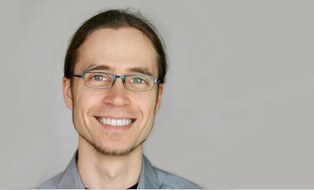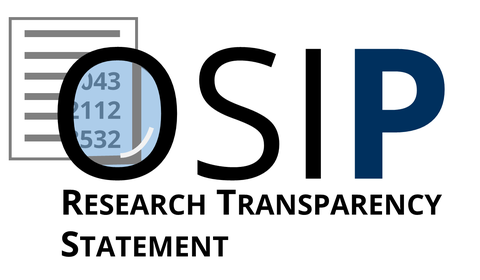Stefan Scherbaum
 © StS
© StS
Name
Prof. Dr. Stefan Scherbaum
M.Sc. Cognitive Science
Forschung
- Open Science Intitiative der Fakultät Psychologie
- Unterzeichner des OSIP Research Transparency Statements
- Empirische Erfassung und komputationale Modellerung der Dynamik psychischer Prozesse in den Bereichen
- Kognitive Kontrolle, Aufmerksamkeits- und Handlungssteuerung,
- Entscheidungen
- Sozialer Koordination
- Untersuchung systemischer Therapie- und Beratungsmethoden
- Improvisationsmethoden, kognitive Flexibilität und psychische Gesundheit
- Umweltpsychologie & nachhaltiges Verhalten
- Diverse Drittmittelprojekte (DFG, Volkswagenstiftung)
Lehre
- Modul M1 Methoden der Psychologie (BSc., 1. & 2. Semester)
- Modulverantwortlicher
- Vorlesung Einführung in die Methoden der Psychologie (WS)
- Vorlesung Versuchplanung und Stichproben (SS)
- Modul M5 Evaluation und Metaanalyse (BSc. 5. Semester)
- Modulverantwortlicher
- Vorlesung & Seminar
- Modul CAN6 Advanced Statistical Methods (MSc. CAN, 1. & 2. Semester)
- Modulverantwortlicher
- Modul-Seminare im WS und SS
- Modulkoordination Modul M4 Experimentalpsychologisches Arbeiten (BSc., 3. &4. Semester)
Betreuung von Abschlussarbeiten und Forschungspraktika
Ich biete laufend Themen für Bachelor- und Masterarbeiten und zu Forschungspraktika an und freue mich auf Ihre Kontaktaufnahme.
Gremien und Funktionen
- Prüfungsausschussvorsitzender des Bachelorstudiengangs Psychologie
- Vertreter der Fakultät Psychologie im Promotionsausschuss des Bereichs Mathematik und Naturwissenschaften
- Ersatzvertreter im Fakultätsrat
- Vertrauensperson der Fakultät
- Ansprechperson für gute wissenschaftliche Praxis
- Initiator der Open Science Initiative der Fakultät
- Gründungsmitglied der Deutschen Gesellschaft für angewandte Improvisation in der Therapie
Publikationen
89 Einträge
2014
-
Dysfunctional decision-making in pathological gambling: pattern specificity and the role of impulsivity, 30 März 2014, in: Psychiatry Research. 215, 3, S. 675-682, 8 S.Elektronische (Volltext-)VersionPublikation: Beitrag in Fachzeitschrift > Forschungsartikel
2013
-
Harder than expected: Increased conflict in clearly disadvantageous delayed choices in a computer game, 2013, in: PLoS ONE. 8, 11, S. 591-600, 10 S.Elektronische (Volltext-)VersionPublikation: Beitrag in Fachzeitschrift > Forschungsartikel
-
Higher response time increases theta energy, conflict increases response time, 2013, in: Electroencephalography and clinical neurophysiology . 124, 7, S. 1477-1479, 3 S.Elektronische (Volltext-)VersionPublikation: Beitrag in Fachzeitschrift > Kurzartikel (Letter) / Leserbrief mit Originaldaten
-
How decisions emerge: Action dynamics in intertemporal decision making, 2013, in: Journal of Experimental Psychology: General. 142, 1, S. 93-100, 8 S.Elektronische (Volltext-)VersionPublikation: Beitrag in Fachzeitschrift > Forschungsartikel
2012
-
Building a bridge into the future: Dynamic connectionist modeling as an integrative tool for research on intertemporal choice, 2012, in: Frontiers in Psychology. 3, NOV, S. 5-18, 14 S.Elektronische (Volltext-)VersionPublikation: Beitrag in Fachzeitschrift > Forschungsartikel
-
Dynamic goal states: Adjusting cognitive control without conflict monitoring, 2012, in: NeuroImage. 63, 1, S. 126-136, 11 S.Elektronische (Volltext-)VersionPublikation: Beitrag in Fachzeitschrift > Forschungsartikel
2011
-
The dynamics of cognitive control: Evidence for within-trial conflict adaptation from frequency-tagged EEG, 2011, in: Psychophysiology. 48, 5, S. 591-600, 10 S.Elektronische (Volltext-)VersionPublikation: Beitrag in Fachzeitschrift > Forschungsartikel
2010
-
How decisions evolve: The temporal dynamics of action selection, 2010, in: Cognition. 115, 3, S. 407-416, 10 S.Elektronische (Volltext-)VersionPublikation: Beitrag in Fachzeitschrift > Forschungsartikel
2008
-
Making decisions with a continuous mind, 2008, in: Cognitive, Affective and Behavioral Neuroscience. 8, 4, S. 454–474, 21 S.Elektronische (Volltext-)VersionPublikation: Beitrag in Fachzeitschrift > Forschungsartikel

